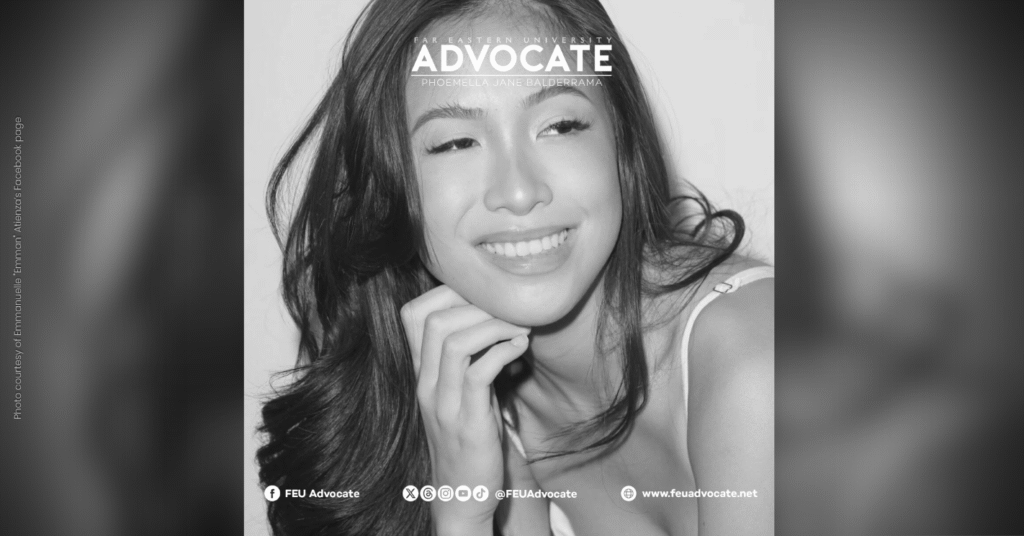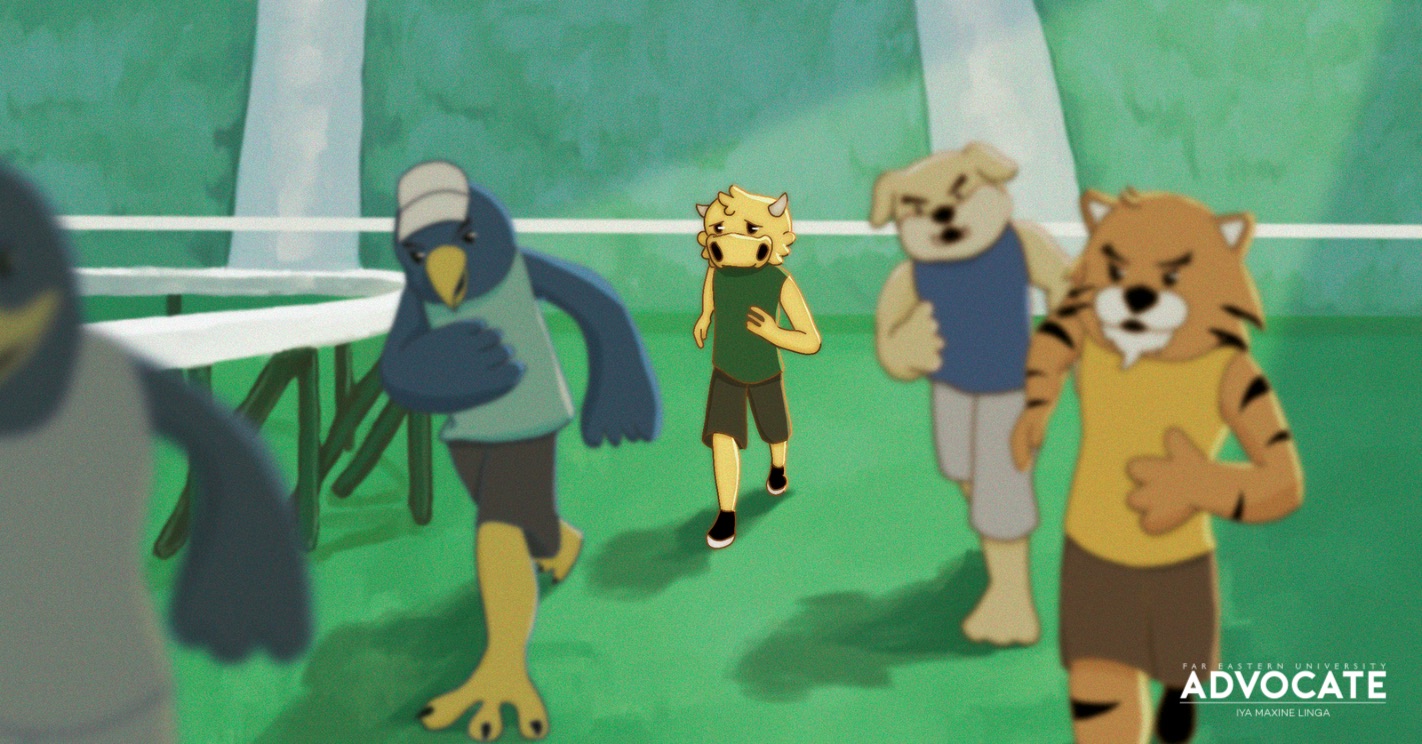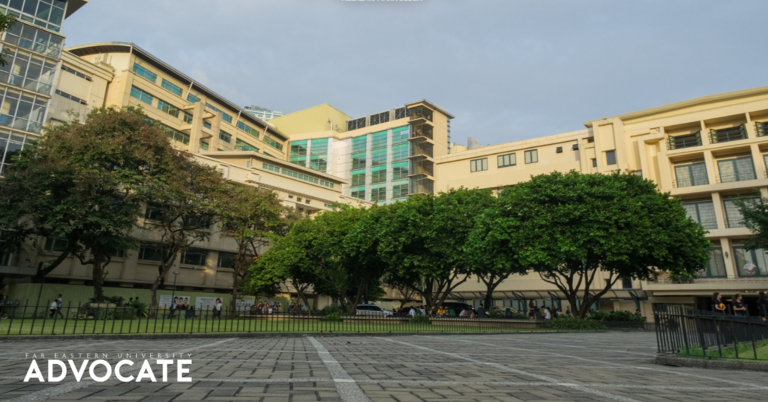
3 FEU Manila alumni earn spots among March 2025 MTLE topnotchers
- April 05, 2025 18:01
FEU Advocate
November 17, 2025 19:27

Vera Psyche
By Phoemella Jane Balderrama, Head Layout Artist
Following the online harassment and tragic passing of Emman Atienza, the Anti-Online Hate and Harassment Bill, also known as the Emman Atienza Bill, was filed to protect people from malicious and defamatory comments on social media. While this is a crucial step in addressing online abuse, it exposes deeper issues, not with mental health alone, but with how laws are enforced and whose interests they truly defend.
While the bill addresses online harassment, it does not solve the greater effects of it. The focus should have been on the better implementation of Republic Act (RA) 11036, also known as the Mental Health Act of the Philippines, which remains poorly enforced despite growing awareness of mental health. What we need is legislation that addresses mental health needs like Emman’s, and this bill cannot be a substitute for it.
In a press release released last November 3, Senate Deputy Majority Leader Joseph Victor ‘JV’ Ejercito announced the filing of the Emman Atienza Bill, named in honor of the late influencer, Emman. The bill serves as a tribute to her life and the movement she inspired.
Emman, a Filipino-Taiwanese TikTok influencer based in California, touched countless lives with her authenticity and transparency. At just 12 years old, she was already struggling mentally, having been diagnosed with Bipolar Disorder and Complex Post-Traumatic Stress Disorder in 2022. Following that, she had been receiving treatment.
She first opened up about her condition in 2024 during her interview at the Status by Sparkle event, where she shared how she had been receiving hate comments since she began creating content. Although the negativity significantly affected her mental health, she said she had been coping with the criticisms. Later, in an interview with Toni Gonzaga, she spoke more openly about her mental health journey and revealed that she had experienced abuse from her family’s former nanny, one of the traumatic events that contributed to her childhood trauma.
However, in her Instagram photo dump in January 2025, she described her progress as “only getting worse as the years passed.” In that post, she shared the heavy burden she had been carrying—being bullied, assaulted, and insulted. Despite maintaining a positive outlook on social media, she revealed that she had attempted to end her life multiple times, even as a child, and often felt that people had grown tired of her. And yet, amid all this pain, she found her will to live again.
In spite of everything, just a month before her passing, Emman became the target of intense online harassment. After posting a now deleted video about spending ₱133,000 on dinner with friends, she was labeled a “nepo baby,” and soon found herself at the center of widespread ridicule and criticism. Many found her video insensitive to the ongoing issue surrounding the controversial flood control projects. What began as a single viral post meant to be “satirical” snowballed into a hate campaign that took a severe toll on her mental and emotional well-being.
According to Senator JV Ejercito, the Emman Atienza Bill will serve as an extension of existing anti-online harassment laws such as the Cybercrime Prevention Act, Cyberlibel Act, and the Anti-Bullying Act, strengthening their implementation against online harassment. However, if these laws already exist, why are they not working?
Instead of fixing weak enforcement, are we simply creating another law to cover for previous failures? The shift of focus toward legislation only proves how flawed our mental health support system is. Let us not forget that Emman is someone who struggled mentally for almost half of her life.
The bill is rather vague, blurring the line between criticism and bullying. This thin boundary can be easily manipulated, especially by those powerful enough to control the narrative. Under its broad terms, anyone could dismiss legitimate criticism as harassment—silencing public discourse and exempting the influential from accountability. What was meant to protect the vulnerable could instead protect those in power.
The Philippines may have made slow progress in raising mental health awareness; however, the government does not seem to be part of that progress. Mental health facilities remain underfunded, and the Mental Health Act itself suffers from poor implementation.
Even with the signing of this act, its effectiveness remains questionable. How come the country’s largest mental health facility, the National Center for Mental Health (NCMH), continues to face funding shortages?
In Sen. Raffy Tulfo’s 2023 segment, the heartbreaking state of NCMH was revealed—insufficient beds, poor hygiene, and a lack of specialized treatment. If a major institution like NCMH struggles this much, how much worse must it be for smaller facilities?
Access to mental health care remains a privilege rather than a right. Although public hospitals such as the Philippine General Hospital (PGH), the National Center for Mental Health (NCMH), and other city hospitals offer mental health services, their slots are often limited. Patients must go through long waiting lists and spend almost an entire day in line just to be accommodated. From these realities, it seems we have a law that exists only on paper, not in practice.
As someone who has also sought public mental health services, it took me more than a month to be accommodated. If access to these services continues to take this long, it only shows how little urgency there is in prioritizing mental health. This is exactly why many people in dire need of support choose not to seek help because of the lethargic and unresponsive healthcare system in our country.
There has long been a stigma in our culture that having mental health issues is simply a sign of a lack of resilience among Filipinos. Phrases such as “hindi lang sanay sa hirap” or “mahina kasi” are often used to describe people diagnosed with a mental condition.
Because mental health is not properly integrated into our education system, many continue to view it superficially. It is only when public figures openly share their struggles that people begin to recognize mental health as a real and serious condition.
Now that people have finally begun to take mental health seriously, with Emman’s case serving as a wake-up call for many, instead of reinforcing this growing awareness, the government seems to be shutting it down again, diverting our attention away from the issue.
Instead of addressing these long-standing points with the implementation of RA 11036 and other existing laws, lawmakers appear more eager to pass yet another bill that adds little substance to the constitution. This only exposes how our weak mental healthcare system is being used as a façade—a convenient excuse to elicit public sympathy.
It is great to honor Emman and have a bill aimed at minimizing online bullying, especially with the growing cases of suicide rooted in online harassment. It is just unfortunate that we only started advocating for mental health when an influential person like Emman became its victim, even though this has been a problem long before.
Many others have lost their lives, yet the people in power have only begun taking action now. This bill should not only honor Emman, but also all the victims of bullying and the poor implementation of the Mental Health Act in our country.
If we truly wish to honor Emman’s legacy, we must go beyond punishing bullies. Let us not forget what Emman truly advocated for: kindness. Protecting people from online harm is not just about silencing bullies; it is about listening to what they truly need and fixing the systems that failed them in the first place.
A little kindness is what it takes, and perhaps that is what our government has long forgotten.
(Photo courtesy of Emmanuelle ‘Emman’ Atienza’s Facebook page)









